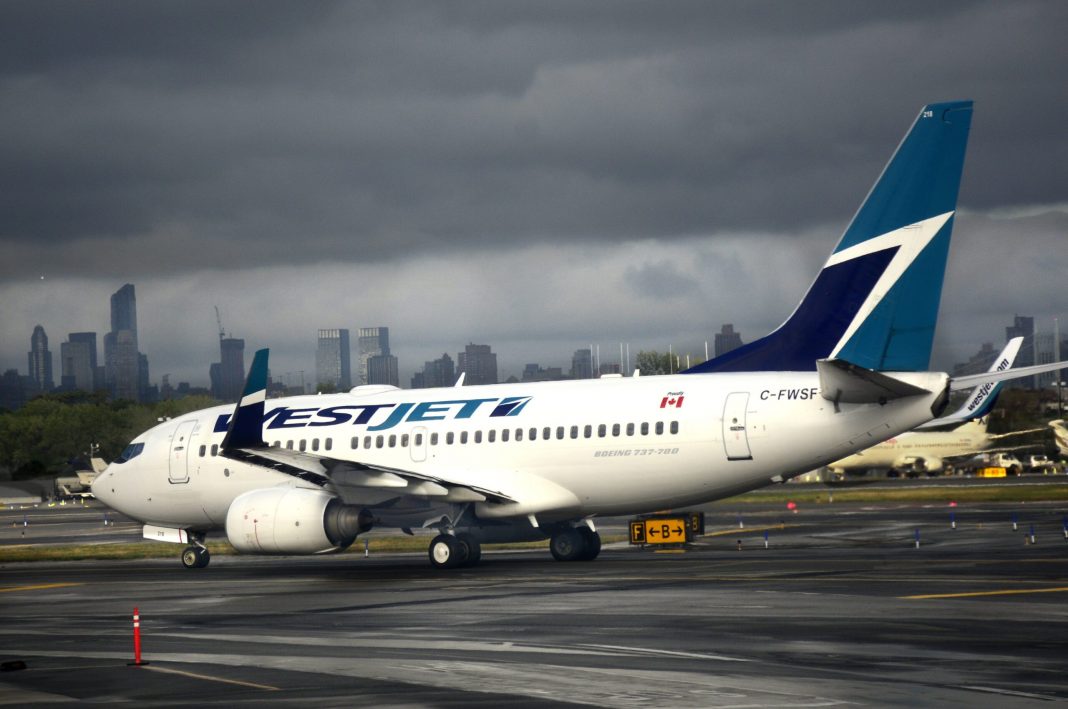WestJet and Delta Air Lines are looking to create a metal-neutral joint venture for US-Canada transborder operations. The joint venture would allow the two airlines to jointly plan, price, and share revenues and costs on transborder routes, which would allow the two airlines to cooperate closely to take on Air Canada. However, the US Department of Transportation (DOT) has asked the airlines to give up more slots out of LaGuardia (LGA) and alter its joint venture agreement.

Metal neutrality is a big part of joint venture agreements. Essentially, whether it is Delta or WestJet flying, it does not matter from a revenue and cost perspective as both will share those. Passengers will note a difference between a WestJet and Delta plane.
Slot divestiture a requirement
With a metal-neutral joint venture, the DOT had some concerns over Delta further expanding its position out of New York-LaGuardia, where the airline has a sizable presence. So, the DOT believes that a divestiture of LaGuardia slots equivalent to WestJet’s current holdings is necessary to address this. This is not the first time LaGuardia slots have come under scrutiny in this deal.
So, the DOT has proposed a divestiture of 16 slots at LaGuardia from the airlines. The new slots, according to the DOT, should go to new-entrant and limited-incumbent carriers at LaGuardia. How this turns out, however, remains to be seen. Delta or Westjet could divest the slots, which could mean one of the airlines suspends service on a transborder operation.

The proposal would see the slots auctioned off by a third party with the highest bidder winning.The funds of the sale of the slots, however, can go to Delta and WestJet.
Excluding Swoop
WestJet had a previous life as a low-cost carrier. Now, the airline has its own ultra-low-cost arm called Swoop. The DOT, concerned about the lack of low-cost and ultra-low-cost presence in the transborder market, is requiring Swoop to stay out of the joint venture. WestJet and its regional branch WestJet Encore will be part of the joint venture.
The DOT does not view Swoop’s presence in the joint venture as adding anything to the agreement. First and foremost, the airline operates on an independent model, with no interlining agreements, connections, or codesharing, and a point-to-point model. In effect, the airline will not necessarily serve to enhance a transborder network that would give Delta or WestJet any benefits in cooperating on price, revenue, planning, etc.

The DOT, however, did leave room for Swoop to cooperate at arm’s length. So there are opportunities for Delta to work with Swoop where it is beneficial, though getting the full antitrust green light from the DOT would be a step too far.
Interlining must still be an option
Alaska Airlines and JetBlue raised concerns about stifling competition in the transborder market. The former, in particular, was concerned about sustaining current services and expanding without an interline agreement.
So, the DOT, recognizing that this could be a major concern, is madating that WestJet, if requested by a US carrier not part of a transborder immunized alliance, must provide interline access under a similar availability and commercial terms currently offered to non-joint venture partners.

Interlining is not the same as codeshare. Interlining agreements are a little less intensive as codeshares. In the former, an airline does not put another carrier’s code on a route. Quite simply, carriers that interline handle passengers traveling on multiple airlines on the same itinerary, which means passengers can check their bags through to their destination, and others.
Do you think the DOT is being fair in their seeking amends to the Delta-WestJet joint venture? Let us know in the comments!
[ad_2]
Source link


